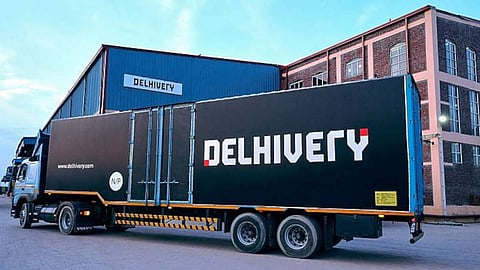Sifting men from boys
A focus on technology, broader market base and operational efficiencies – these are the three factors that separate the Delhi-based IPO-bound Delhivery Ltd from the other listed new-age start-up players, when it comes to key metrics like revenues and market share. At a time when such companies fight tooth and nail to maintain as well as increase their market share and profitability, Delhivery’s key metrics tell a different story.
“Delhivery has recorded Rs4,810 crore for the nine months of 2021-22,” explains Sandeep Barasia, executive director, Delhivery. “We are the largest and fastest growing company in logistics by far in the country. It is an interesting sector because, unlike other business sectors, this is a sector that is completely non-discretionary and absolutely essential for the economy”.
“Logistics will always be there – even what we use in our day-to-day life has logistics behind it,” Barasia adds. “That is how quintessential we are. We are like utility. Every part of the world, logistics tends to be driven by scale. Companies tend to be massive. All of the leading economies in the world have large logistics companies. Logistics is a scale-driven business. Logistics industry in India is fragmented. We are now the largest integrated logistics company in India. India needs multi-billion dollar large size logistics player. Our aspiration is to be one of them.”
An analysis of the company’s IPO prospectus shows that the logistics major clocked in Rs4,810 crore during the first nine months of 2021-22, which is more substantial than most other new-age companies. The company’s strategic and revenue efficiencies also translate into adjusted profits after tax at a cash level. A further break-down of Delhivery’s numbers reveals that the company has posted an adjusted profit after tax.
Post listing market cap
A computation using the current market capitalisation and dividing it by the latest nine months’ revenue numbers shows that Delhivery is priced much lower than other listed new age start-ups – despite its comparatively higher scale and profitability. Assuming that Delhivery lists at the higher price band of Rs487, the ratio will be 7.3 times.
As India’s ecommerce momentum continues, these numbers will be keenly watched by investors. The company has filed RHP with SEBI for a Rs5,235 crore IPO. The issue will open for subscription on 11 May, while the anchor investor bid opened on 10 May. Out of Rs5,235 crore funds raised, Rs4,000 crore comprises fresh issuance, while the rest is for offer for sale. The decision to go ahead with IPO was taken after a positive response to recent IPOs of Rainbow and Campus, which made investment bankers confident of generating a good response.
“The market opportunity for Delhivery is massive,” says Barasia, talking about his plans. “We have grown at 50 per cent per annum over the last two years. We have five business lines, the largest being express parcels. This line is primarily driven by ecommerce. As long as this industry continues to grow, that business will grow on a healthy base. This is roughly 57 per cent of our entire business. The rest 43 per cent comes from B2B businesses – part truck load, full truck load, and supply chain services (warehousing and transportation) and cross border services.”
“We have momentum across every single business line,” Barasia adds. “Our immediate focus in the future will be to continue investing heavily behind each of these five business lines and grow them as fast as we can, because the market opportunity is still large across all of them. We are going double down and cross sell to customers. Delhivery works with more than 21,000 customers, with 58 per cent of our revenues coming from customers who use two or more of our services.”
“The other two areas of focus for us will be M&A opportunities. We have kept aside money for M&A because we see more and more opportunities to do inorganic in the market over and above what we do organically. We have Rs2,900 crore of cash as of December 2021. We will be getting Rs4,000 crore cash from the IPO, which will bring our cash level to Rs6,900 crore and will position us strongly for M&A and for investing behind organic activities. The third growth area for us will be to look at some new opportunities – like how can we take unique and proprietary platform built by us and export that. This is over and above building core business”, sums up Barasia.
“The primary issuance is of Rs4,000 crore, out of which, Rs2,000 crore will go for organic investments in our existing business across the five business line,” informs Amit Agarwal, CFO, Delhivery. “We will invest money in hardware and software. For us, hardware comprises automation and robotics in building capacity for sortation systems and material handling. Software is essentially for developing technology products that allow us to orchestrate our automation of manpower fleet. We do not have any intention to buy land or building”. The company is poised to benefit from India’s economic momentum due to its broad-based business strategy, he feels.

